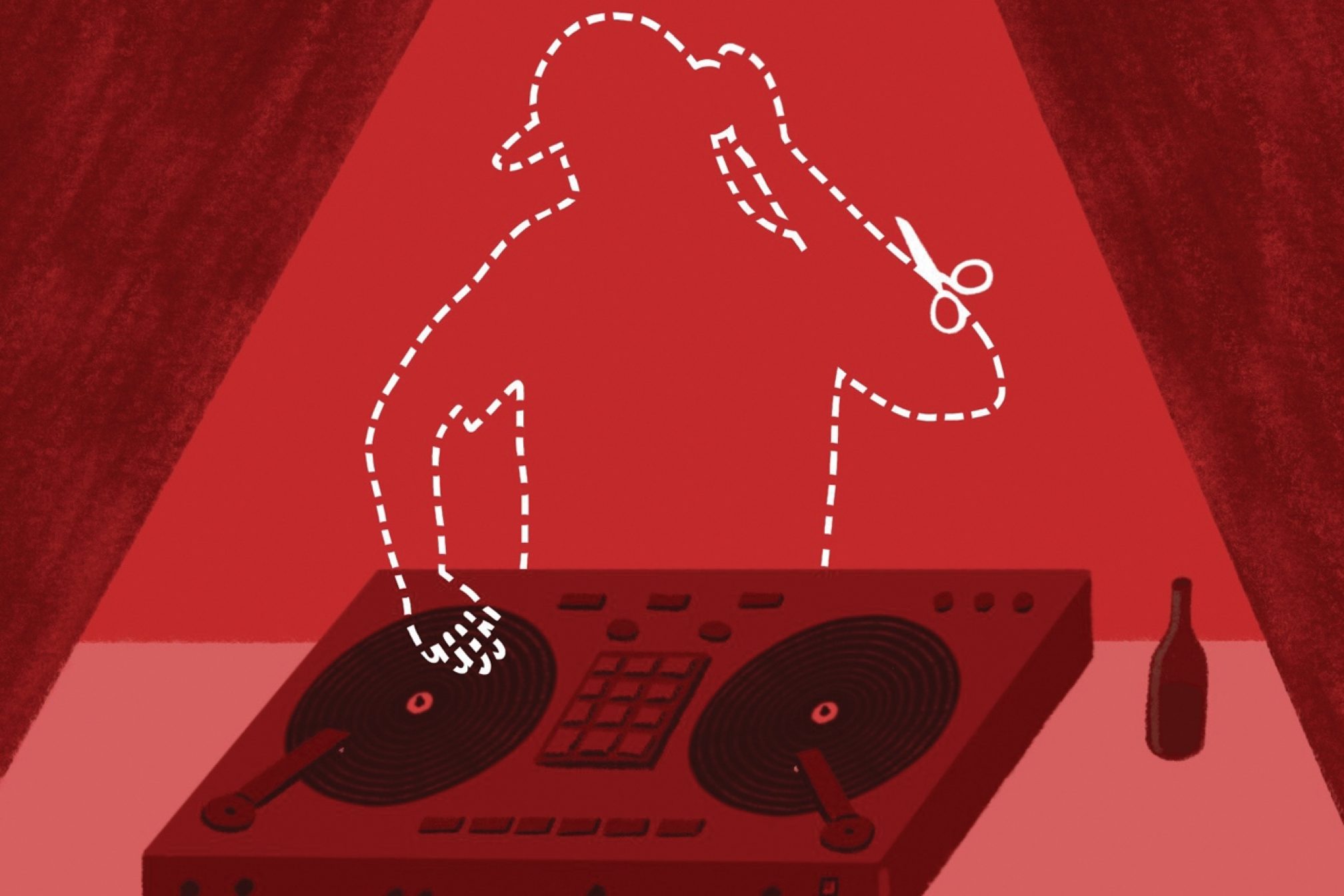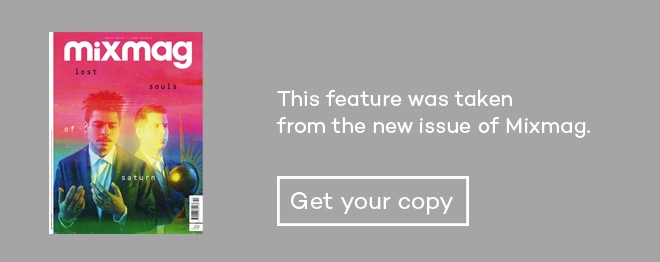 Features
Features
The Secret DJ: The best parties are when the crowd and DJ are unified
As new track request technology raises questions about the very purpose of DJing, our mystery spinner grapples with existentialism
So: A new app called PSLY is being developed that allows club-goers to vote on which song the DJ should play next during their set. Users can search and select a song from their music libraries for their suggestion, and whichever track receives the majority vote from the crowd gets cued up.
Read this next: Startup creates app that lets club-goers vote on the DJ's next track
This is a little late to the party. I first heard about automated DJing in the late 90s. Some German scientists had an array of sensors in a club that could read temperature, crowd noise and even register when hands went in the air. A computer read these ‘responses’ and would ‘choose’ the next record accordingly and mix it in. Allegedly it didn’t do a bad job, which is debatable as it could only do trance.
There is also, of course, a slew of tech that automates the DJing process. Unbelievably, it is now the norm not be able to mix without help. Even Spotify mixes for you now. But this fresh tech is skewed more towards the crowd, potentially making the DJ finally and entirely obsolete, and turning everything we hold dear into nothing more than a very large and very expensive jukebox.
Read this next: The Secret DJ: Resist the urge to become a copycat DJ
In essence we are approaching the singularity at the murky heart of the whole thing, ie: ‘What is the DJ for?’ After all, is not the purpose of modern capitalism to be ‘disruptive’? Or to be more blunt, to destroy and replace? So if the tunes are chosen by algorithm, or at best because they resemble each other greatly, and then an app mixes them, is the DJ just there to look good or display some sort of gimmick or contribute a woke or edgy image? Is the next step all about removing the DJ entirely from the equation? After all, we are arguably almost at that point. Personally, I wouldn’t mind a long holiday.
This does, of course, hinge entirely on the question of whether requests or even the opinions of the dancefloor are important. I would argue that they are, well, not. Naturally, I don’t think anyone’s taste in music but mine matters. Unfortunately, these days that’s what everyone thinks. On the other hand, the act of listening to a request does have value. You are a professional and as such it is your job to listen, nod and smile; then utterly ignore the track they ask for, unless it’s good and one you were actually about to play, which simply never happens. All they want is to be seen to be in the booth and talk to you. Be nice, it costs you nothing. All this ‘respect the DJ’ prissy bollocks is daft. It’s part of the myth that DJs are more important than the music. We aren’t.
Read this next: The Secret DJ: The DJ should be one part of the party, not the focu
But a more interesting question is whether DJs are more vital to a night out than the people who have paid for the DJ to be there. Then we have to wonder: are people now merely paying to see a minor celebrity pretend to perform, or are they there to listen and dance to an authentic set of skills?
Requests can get out of hand, though. Many years ago, back when people considered the job of the DJ as being able to mix together two, or even three records that might not ordinarily go together, I had a few tricks that I’d roll out if the vibe was right. One was to play a very famous pop record over the top of a very cool dance record. ‘No way!’ you cry. Well yes – before you stop reading I should point out that this was some years before technology allowed people to do mash-ups and re-edits of their own. In fact, at this time the only way to do it was live. Or in a very expensive studio, which no-one did because you’d only want to spend that kind of money making an original record. I should point out that the pop record was not electronic, and therefore not easy to keep in time at all.
Anyway, it was popular when I did it. People cheered. I felt good. I used to do it regularly at my residency. But unbeknownst to me, and probably entirely coincidentally, another DJ decided to actually make what was then a new concept called a ‘bootleg’: basically the same pop record as mine, with a modern beat under it, produced in a very pricey studio. Suddenly my party piece was everywhere, at every disco in town.
Read this next: The Secret DJ: The artists who keep it real are usually the ones around for the long run
So when a kid came up to the booth and asked very politely, for about the 30th time that night, when I was going to play the bootleg by the other DJ I’d been playing every week for the past year that he loved so much, I stopped the record that was playing, and I’m sorry to say, I turned to him and screamed “IT’S NOT A FUCKING BOOTLEG, SON! IT’S THE ORIGINAL RECORD PLAYED SIMULTANEOUSLY WITH ANOTHER RECORD. YOU MIGHT HAVE HEARD OF THE PROCESS… IT IS CALLED DJING!” I immediately hated myself for it. I never played the record again. And afterwards I was always particularly nice towards people making requests.
Perhaps the problem is the degree of pomposity and lack of respect for each other: the people in the crowd thinking the DJ is there to be their personal music curator at best, a disposable flesh jukebox at worst; DJs thinking the people in the crowd are a sweaty mass of barbarians who know nothing about anything. Neither of these things are true. Unity was at the heart of the brief beauty that was acid house. It can be again if we try.
Follow The Secret DJ on Twitter and catch them play Ministry of Sound's Halloween party this Saturday
George Morton is a freelance illustrator, check out his website
Read this next: Get the best of Mixmag direct to your Facebook DMs



